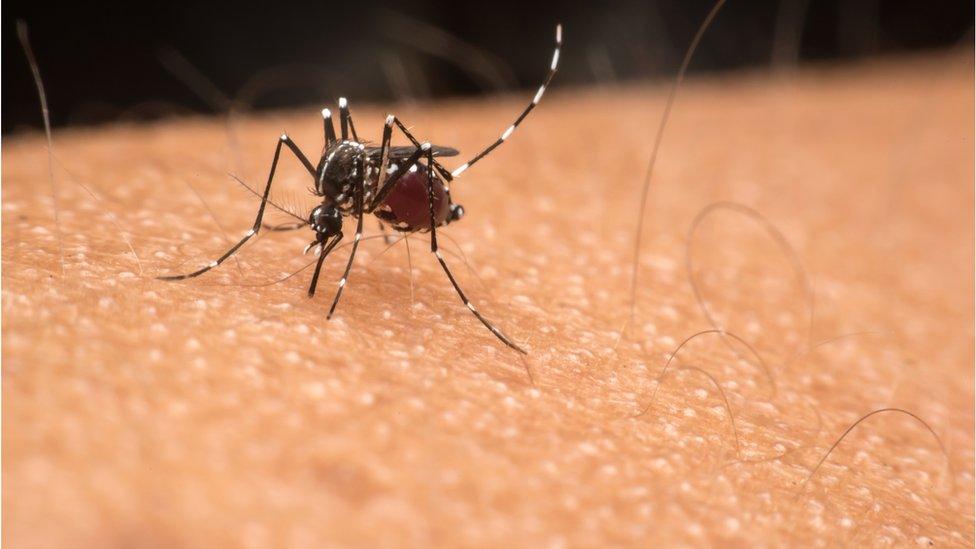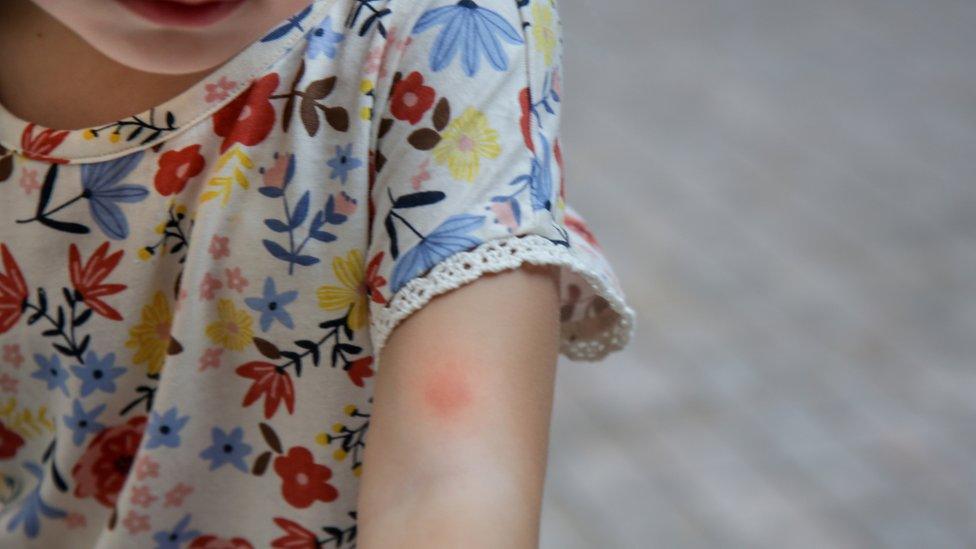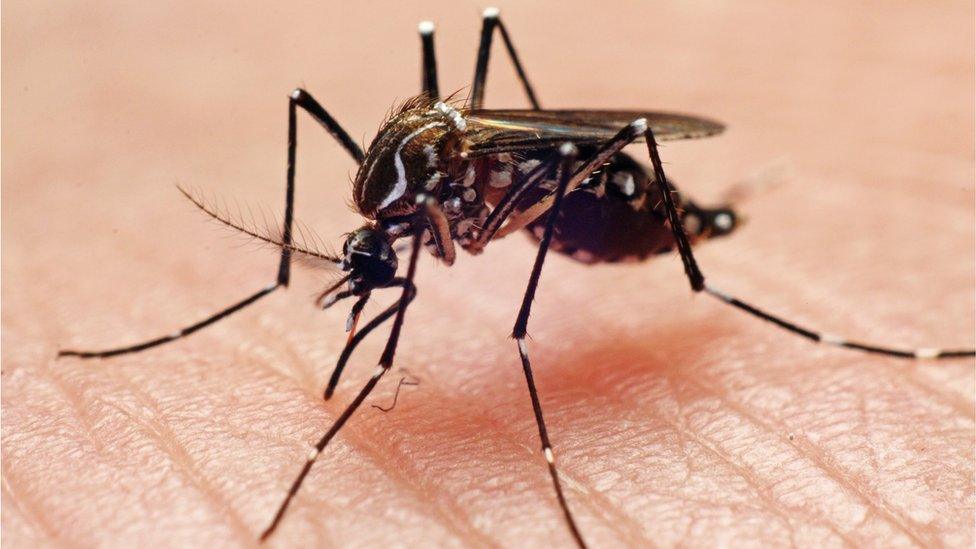Why do mosquitoes bite some people more than others?
- Published

Are you that person who always seems to get bitten by mozzies, whilst those around you remain bite-free?
Scientists have known for a while that mosquitoes don't attack everyone equally, and there have been many different studies into why that is.
Research has suggested some people are mosquito magnets, due to their smell, while other experts have suggested ways people can protect themselves over the summer.
There are about 3,500 species of mosquito that live all over the world, and 34 are native to Britain.
Many of them feed on the blood of humans and animals and because of this they can sometimes spread diseases.
In the UK we don't have any mosquito-borne diseases but their bites can be very itchy and painful - something which may be particularly irritating when you are the only person affected.
Are there more mosquitoes around than usual?
The number of mozzies changes every year and it's usually down to the weather.
In long, hot summers with shorter periods of rain mosquitoes breed more frequently - meaning more of the insects than during cooler and drier spells.
In the UK, Kent is one of the worst affected parts of Britain. Last year areas around the River Stour were inundated with the insects, due to the warm air and plentiful marshland.
Why do mosquitoes always bite the same people?

Does this look familiar? You might produce more of a particular acid which makes you more attractive you mozzies
A study in the US said the reason some people are more affected by the pests is to do with body odours - and a unique smell means some people are more affected than others.
Researchers from Rockefeller University in New York designed an experiment to put the mosquitos to the test.
A group of 64 volunteers wore nylon on their arms for six hours to pick up their individual smell.
Two nylons from different participants were then put in a canister with female Aedes aegypti mosquitoes to see which one they preferred.
At the end of the test, the team were able to see which ones were more attractive to mozzies than others.
According to the study, published in the journal Cell, one participant's smell profile stood out.
The "mosquito magnet" was 100 times more attractive to the mosquitoes than the least attractive people.

The study found people who are "mosquito magnets" are likely to stay that way for the rest of their life
The scientists then looked at what might have caused such a difference and found the people who were most attractive to mosquitoes all had high levels of carboxylic acids.
Humans produce carboxylic acids through the waxy coating we all get on our skins called sebum.
According to the study, the levels of this chemical don't change over time which unfortunately means if you're a mosquito magnet now, you're likely to be a mosquito magnet for the rest of your life.
The good news is scientists hope by understanding what skin odours are most attractive to the mosquito, they might be able to develop more effective repellents to protect people from them.
What can you do to help protect against mosquito bites?
Some experts say the hotter and sweatier you are, the more likely you are to get bitten.
Mosquitoes are also more likely to strike at dawn and dusk, and you are most vulnerable below the knee, so wear long trousers, socks and a good repellent.
If you do get bitten, don't scratch.
Experts suggest using a block of ice to reduce swelling, or dabbing the area with either a mix of bicarbonate of soda and water, or using antihistamine cream or recommended bite relief product.
